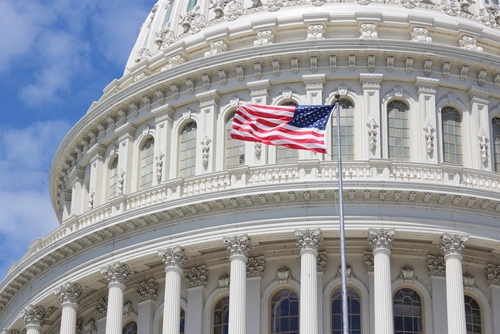
President Joe Biden signed Thursday a critical omnibus into law, setting up the Congressionally approved Consolidated Appropriations Act (H.R. 2617) to fund the government and, importantly, numerous health care and consumer protection efforts.
“As Chairman of the Energy and Commerce Committee, I’m proud to have secured provisions in the bill that will increase access to health care and establish critically important consumer protections,” U.S. Rep. Frank Pallone, Jr. (D-NJ) said in a statement. “The government funding agreement guarantees 12 months of continuous Medicaid coverage for 40 million of our nation’s children, provides two years of additional CHIP funding, and permanently extends the option for states to offer 12 months of Medicaid coverage to new moms. In addition, it provides resources and support to address our nation’s mental health and substance use disorder crises, which we know are especially acute among young people.”
The comprehensive legislative package tackles many areas, but among them are extended funding for Medicaid and the Children’s Health Insurance Program (CHIP) through fiscal year 2029 and the extension of Medicaid funding at a higher federal match through 2027 for Puerto Rico and permanently for other U.S. territories. As a result of the former, children nationwide will need to be given 12 months of continuous coverage in Medicaid and CHIP as of Jan. 1, 2024, and a permanent state option provided that would allow that coverage to continue during the postpartum period in Medicaid or CHIP.
As to mental health care, the omnibus will expand or create more than 30 supportive programs for such care at large and for substance use disorder and recovery. Reauthorization would be granted to the National Suicide Prevention Lifeline Program, the Community Mental Health Service Block Grants, and the renamed Substance Use and Prevention, Treatment, and Recovery Block Grants, while greater funding and support would also be granted to maternal mental programs, among others.
Modernization will be headed to the Food and Drug Administration (FDA), which will gain improved oversight capability of drugs approved through its accelerated approval pathway. For clinical trials, improvements would be required of the agency, including greater diversity and engagement demands for participants. Additionally, the FDA would be empowered to more effectively regulate cosmetics and personal care products, establishing good manufacturing practices and requirements for manufacturers to report problems, list allergens, and register manufacturing facilities. FDA’s recall authority would be extended to include cosmetics as part of this.
“After more than 80 years since our cosmetic safety laws were last updated, Congress is passing legislation I’ve long championed to empower FDA with the tools and resources it needs to oversee the cosmetics industry,” Pallone said. “It’s a huge win for consumers, and I’m thrilled it’s going to be signed into law.”
Updates for the Strategic National Stockpile expanded access to telehealth, and the creation of a new research organization, Advanced Research Projects Agency – Health (ARPA-H), to invest in novel, high-risk, high-reward research projects with broad application potential are also on the agenda.
Pivoting to consumer protection and commerce, the omnibus will lay out a national, federally enforced standard requiring online platforms to verify the identity of high-volume third-party sellers, add new product safety standards, add information online for federal manufacturing programs and create a new Assistant Secretary of Commerce for Travel and Tourism position to create a 10-year strategy for boosting tourism and gathering data on related trends.
The legislation will also require the Federal Trade Commission to begin reporting on cross-border complaints that involve ransomware or other cyber-related attacks undertaken by foreign entities. Specifically, this aspect would focus on attacks committed by Russia, China, North Korea, or Iran, along with individuals or companies linked to them.




